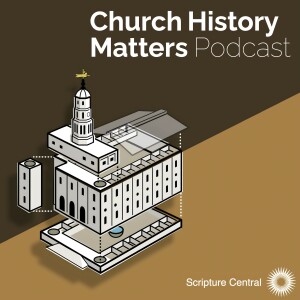

Thursday with Tabitha 6. Nahum by Tabitha Smith
Nahum prophesied about the destruction of the city of Nineveh, the capital of the nation of Assyria. If Nineveh sounds a bit familiar, it might be because you’ve listened to the first instalment in this series about the book of Jonah! In some ways, Nahum is like a sequel to Jonah.
The date of writing of Nahum can be narrowed down to somewhere between 660 BC and 630 BC. We can deduce this because of the historical events that Nahum refers to during his prophecy (unless of course you don’t believe in predictive prophesy!). Like Micah last week, we don’t know anything about Nahum apart from the fact that his home town was called Elkosh. It’s not certain where this was, but it was probably in Judah because at the time of his prophesy, the kingdom of Israel had ceased to exist.
The ten tribes of the Northern Kingdom of Israel had fallen to the Assyrians in about 722 BC. The Southern Kingdom of Judah had not suffered the same fate, despite an attempted siege of Jerusalem by Sennacherib of Assyria shortly after the fall of Samaria. Instead, the Kingdom of Judah had become a sort of vassal state to Assyria. The Assyrian kingdom had been established by acts of terrible violence, torture and cruelty and forced deportations of thousands of people, under the leadership of Tiglath-pileser III. His campaigns were ruthless and highly successful, conquering most of the known world at the time.
Nineveh was a great city, the capital of Assyria. Jonah had been sent by God with a message of warning to Nineveh, telling of God’s imminent judgement on them for their evil behaviour.
At that time, much to Jonah’s surprise and disgust, the people of Nineveh did repent and God spared them. However, a century later, we see that the repentance did not last, and Nineveh has fallen back into evil, idolatry, violence and depravity.
Nahum’s key message is that God is going to judge and overthrow Nineveh. Nahum means ‘comfort’ and his message would have brought comfort to the people of Judah who were living under Assyrian oppression.
Nahum is written in the style of ancient war poetry. The first verse of the book tells us that Nahum received the prophecy in the form of a vision. The way he writes his book is like the eye-witness account of a war correspondent. God is pictured as a divine warrior, coming to judge the Assyrians for their evil deeds. God had used Assyria as a tool of judgement on his own people, but the Assyrians were held accountable for the wicked nature of their conquests and the ways they had lived their lives in alienation from God.
In chapter one, the book opens with a poetic description of God on the war-path. God is described as jealous (for his honour and his people), wrathful, righteously angry and all powerful. Even the rock-solid mountains melt before him and the seas dry up completely. Nothing and no-one can stand against him. At the same time, God is also described as slow to anger, good, knowing those who seek him, compassionate and seeking his people’s freedom from their oppressors. The message that Nahum proclaims is simultaneously terrible and wonderful, and it all depends on the reader’s perspective and relationship to God.
At the end of Nahum 1, Judah is urged to keep the feasts, i.e. the celebrations of their history that remind them of God’s salvation purposes and commemorate his saving works for them in the past. Judah will be restored once more. We should not miss the significance of this - the Messiah would one day come from the remnant of Judah.
Nahum 2 launches into a prophetic account of the overthrow of Nineveh. The imagery is vivid and it’s almost as if Nahum is present in the city, watching the events unfold. The invading army arrives in the outskirts of Nineveh and the call goes out to ‘man the walls’ and take up arms. The invasion comes with speed and devastation, chariots thundering and swords and spears flashing and glinting in the sun. The invading soldiers are clothed in red with red shields, possibly indicating the original colour of the shields or their staining with blood. Siege towers are built and the river gates are opened to flood the city and destroy the royal palace.
It’s helpful here to consider what we know from historical accounts of the overthrow of Nineveh. Nineveh was attacked by a coalition of armies, principally of the Medes and Babylonians, in 612 BC. The city was sieged for a period of time which may have been as short as a few months. The invading armies closed the gates of the river Khoser, which flowed through the city, allowing the water to build up. The gates were then opened, unleashing a flood on the city which destroyed much of the important architecture and allowed the invaders to penetrate the city walls and finish the overthrow of the city.
Nahum 2 contains more vivid images of the invasion with graphic descriptions of the piles of dead bodies in the streets of the city. God asks Nineveh whether she has considered herself better than Thebes. Thebes was a great city in Egypt which was invaded by the Assyrians in about 664 BC. Thebes had appeared to be immune to attack with a natural sea defence and many allies. However, the Assyrians had conquered the city. They were now going to get a taste of their own medicine.
The book ends with Nahum surveying the aftermath of the siege and invasion. The final words are a taunting song declaring the finality of the destruction.
The ruins of Nineveh can be found today near the modern Iraqi city of Mosul. They were not discovered until the 19th century - prior to this all reference to Nineveh disappeared from the pages of history. When the ruins of the city were uncovered, many unburied skeletons were found. The city was razed to the ground. Nahum’s prophesies were fulfilled.
The book of Nahum reminds us that God is all powerful, omnipotent. He is not a tame god who is passive and powerless but he acts on behalf of his people. He is a God of justice who cannot pass over sin and evil but he must act justly to uphold his own honour and the welfare of his chosen people Israel. Moreover, God had promised to spare a remnant of his people, specifically from the tribe of Judah, in order that the Messiah, the deliverer, would come from his people. The future of the people of Israel often seemed under threat but God always faithfully preserved and restored a remnant to preserve the line of Abraham.
God is able to work even the most impossible of circumstances and most wicked of people into his sovereign plan. The seemingly ordinary list of names in the genealogy of Jesus described in Matthew chapter 1 encompasses accounts of infertility, prostitution, bereavement, displacement, adultery, murder and exile. God truly is able to make all things work for the good of those who love him, according to his purpose (Romans 8:28).
God can even use wicked and pagan people in order to judge his own people and work for their ultimate good. In a few weeks’ time we will look at this issue in more detail as we look at the way Habakkuk wrestled with this.
Whatever opponents or battles you face in your lifetime, none of them are too big for God to handle. The military might of the Assyrians was legendary and they built one of the greatest empires the world has ever seen. Yet even they were relegated to the pages of history, the ruins of their prized capital city lying undiscovered for centuries. Our perspective is so limited. We struggle to comprehend the span of human history, and yet humans are such a brief vapour, like the dew that evaporates from the morning grass. Peter says in the first chapter of his first letter:
“All people are like grass, and all their glory is like the flowers of the field; the grass withers and the flowers fall, but the word of the Lord endures forever.” 1 Peter 1:24-25
All earthly things will pass and only God will endure. Yet, incredibly, he cares about each one of us and knows every detail about us. The whole of history is centred around the life of Jesus, God in the flesh, who came to rescue us. Jesus is the Alpha and the Omega, the beginning and the end. He stands in authority above all human institutions and authorities, both the good and the evil ones. His kingdom is incomparably greater than the most mighty of human kingdoms and yet it is established in an upside-down order where the first are last and the last are first. We pray “your kingdom come on earth as it is in heaven” because Jesus has been given all authority in heaven and on earth. One day his kingdom will be unified and complete.
Then, as Paul says ‘at the name of Jesus, every knee will bow, in heaven and on earth and under the earth and every tongue confess that Jesus Christ is Lord, to the glory of God the Father’ (Philippians 2:10-11).
Right Mouse click or tap here to download this episode as an audio mp3 file
More Episodes
All Episodes>>You may also like
Create Your Podcast In Minutes
- Full-featured podcast site
- Unlimited storage and bandwidth
- Comprehensive podcast stats
- Distribute to Apple Podcasts, Spotify, and more
- Make money with your podcast












